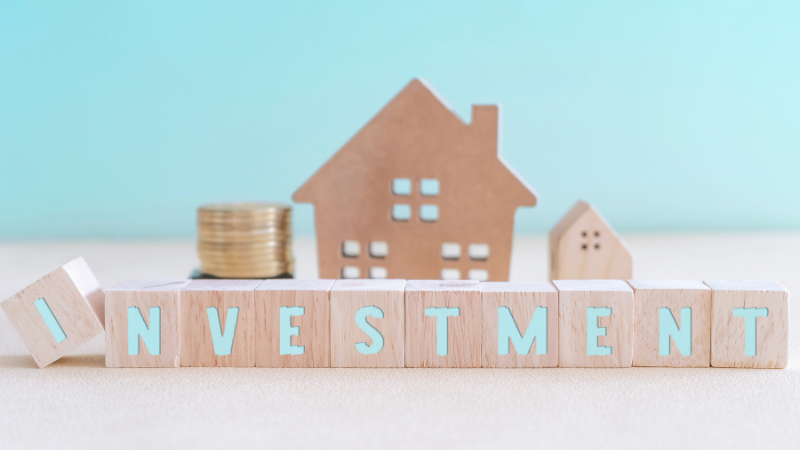Last updated: January 2026
Quick answer
The best mortgage company for investment property in 2026 is one that aligns with your real estate goals, offers investor-focused programs like DSCR or bank statement loans, and applies clear, updated loan-to-value (LTV) guidelines tailored to the transaction and property type.
Why choosing the right lender matters for investment property financing
When you’re buying or refinancing an investment property, your lender becomes part of your strategy.
The wrong choice could delay your deal, reduce your leverage, or force you to use outdated documentation models.
An investor-savvy mortgage company will offer loan structures tailored to rental income, variable income, or complex ownership profiles.
A strong investment property lender should:
- Offer non-QM loan options like DSCR, bank statement, or P&L loans
- Finance properties under LLCs or for foreign nationals
- Support 1–4 unit, short-term rental, or vacation property financing
- Provide responsive underwriting and quick closings
- Apply clear credit score, reserve, and LTV requirements
What is an investment property loan?
An investment property loan is a mortgage used to finance real estate that generates income rather than serving as your primary residence.
Investment properties can include:
- Single-family rentals
- Duplexes, triplexes, and fourplexes
- Vacation rentals and short-term rental properties
- Condominiums or townhomes held as investments
Because these are income-producing assets, mortgage companies evaluate the borrower and the property as part of the loan file. This makes product fit and lender expertise more important than in standard residential lending.
Loan types available for investment properties
| Loan type | Use case | Qualification method |
|---|---|---|
| DSCR loan | Long- or short-term rentals | Uses rental income to qualify |
| Bank statement loan | Self-employed investors | Uses 12–24 months of business/personal deposits |
| Jumbo loan | High-value investment properties | Loans above conforming limits |
| P&L loan | Business owners | Uses CPA-prepared profit and loss statements |
| Asset depletion loan | High-net-worth borrowers | Converts assets into qualifying income |
| HELOC | Equity-based investing | Accesses funds from existing property equity |
These loan types allow investors to structure financing around how they earn income or how they plan to scale their portfolio.
How to compare investment property mortgage lenders
- Property type and program availability: Can the lender finance your property type? Look for support for 1–4 unit homes, condos, and short-term rentals. Not all lenders allow LLCs or non-warrantable condos.
- Credit and reserve flexibility: Most lenders require a credit score of 620 or higher, but stronger profiles may unlock better pricing and higher leverage. Expect additional reserve requirements for larger portfolios or multifamily units.
- LTV guidelines and down payment requirements: Investment properties typically require a 15–30% down payment, depending on the lender. Look for updated LTV options like:
- Up to 85% LTV for single-family purchase transactions
- Up to 80% LTV for rate-and-term or cash-out refinances
- Income documentation: If you’re self-employed or have irregular income, you’ll want lenders who accept bank statements, rental income, or asset-based verification rather than W2s or full tax returns.
- Underwriting speed and investor experience: Lenders with experience working with real estate investors move faster and structure files more efficiently. This is critical in competitive markets where deals move quickly.
Who should use investment property financing?
These loans are a good fit for:
- First-time real estate investors
- Landlords scaling from one to multiple properties
- Airbnb or vacation rental hosts
- Self-employed professionals using real estate for retirement
- Foreign nationals purchasing U.S. rental properties
- Borrowers who write off business expenses heavily
Why Defy Mortgage is a strong choice for investor financing
Defy Mortgage offers over 75+ lending programs and an almost 5-star rating on Google, with a dedicated focus on non-QM lending for real estate investors.
Whether you need to qualify based on rental income, self-employment, or liquid assets, Defy Mortgage provides flexible loan options, responsive customer service, and over 25+ years of lending expertise for real estate investors of all experience levels.
Defy Mortgage offers:
- Up to 85% LTV for purchase transactions on single-family investment properties
- Up to 80% LTV for rate-and-term and cash-out refinances
- Up to 90% LTV for bank statement loans
- DSCR loans with ratios as low as 0.75 or no ratio
- Flexible FICO scores down to 640
- Bank statement and P&L loans for business owners and self-employed
- HELOCs for investment property equity
- Foreign national loans up to $3M+ without a U.S. credit score
- Lending to LLCs and complex ownership structures with no max property count
- DSCR options for short-term-rental investments, regardless of investor experience
- Loan amounts up to $6M+ for a variety of property types
When other lenders may be a better fit
Some borrowers may prefer lenders that offer conventional or agency-backed investment loans with potentially lower rates but stricter documentation requirements.
Others may benefit from regional banks or credit unions that focus on localized programs or simpler ownership structures. Comparing lenders based on loan terms, documentation requirements, and investment strategy helps ensure the financing aligns with your goals.
How to choose the right mortgage company for your investment goals
Choosing the right mortgage company for investment property financing can have a lasting impact on your cash flow, leverage, and ability to grow a portfolio.
The best lenders combine investor-focused loan programs with clear guidelines and responsive underwriting that match real-world income scenarios.
If you want financing that aligns with your investment strategy, schedule a consultation or request a quote from a Defy Mortgage specialist today.
FAQ: Best mortgage company for investment property
Q: What is the best mortgage company for investment properties in 2026?
The best choice depends on your income type, credit profile, and property goals. Defy Mortgage specializes in investor lending, offering flexible programs such as DSCR and bank statement loans.
Q: Can I qualify using rental income instead of personal income?
Yes. DSCR loans let you qualify based on the property’s income, without requiring W-2s or tax returns.
Q: What credit score is needed for an investment property loan?
Most lenders require 620 or higher. A score above 680 may help you access better terms or lower rates.
Q: What is the down payment for an investment loan?
Down payments typically range from 15% to 30%. Defy Mortgage offers up to 85% LTV for qualified single-family purchases.
Q: Can I buy an investment property under an LLC?
Yes. Many non-QM lenders, including Defy Mortgage, allow LLC ownership for liability and tax benefits.
Q: Do investment loans take longer to close?
Not necessarily. With the right lender, investment loans can close as quickly as 14 days for owner-occupied loans.
Q: What loan types work best for short-term rentals?
DSCR loans and bank statement loans are commonly used, depending on how you report your income.




